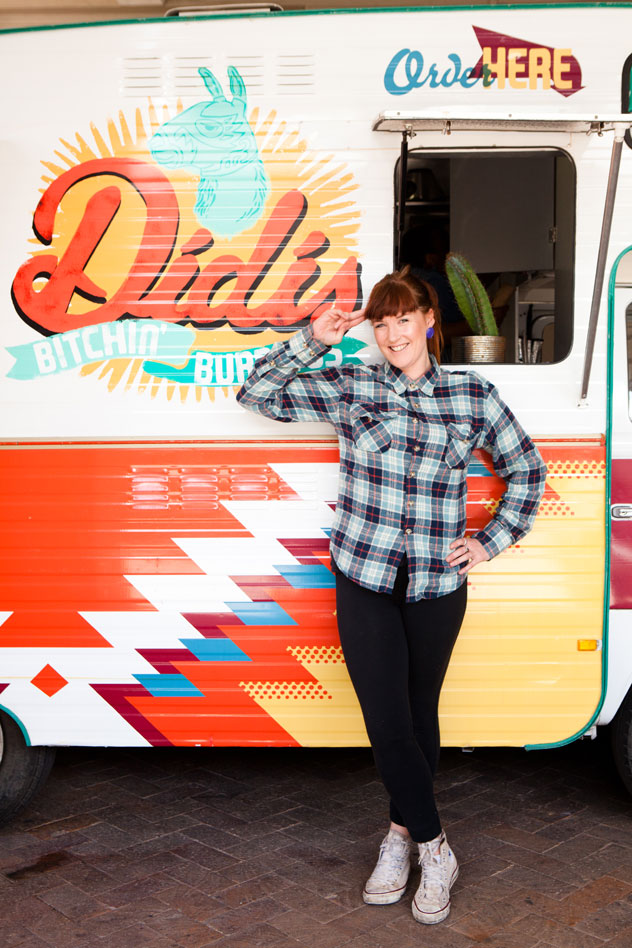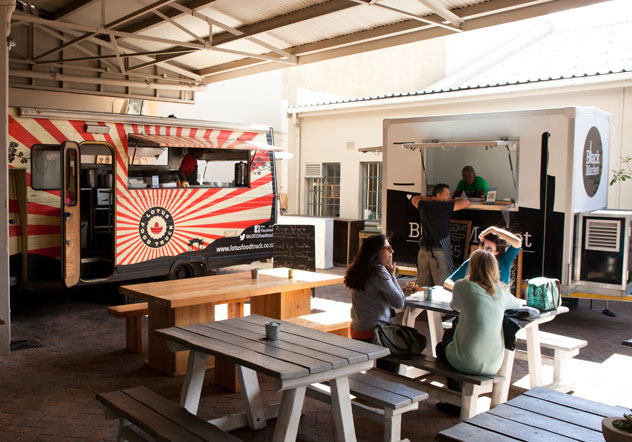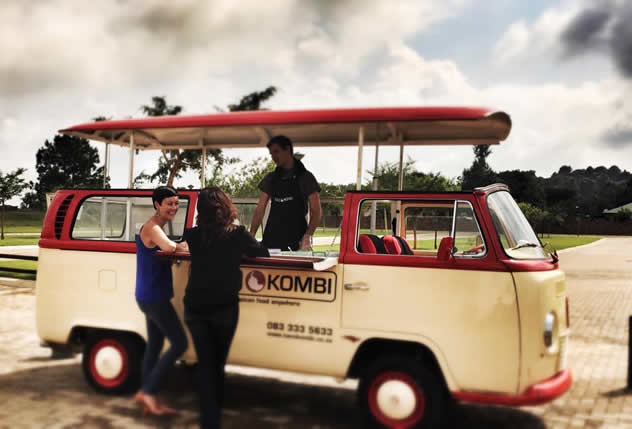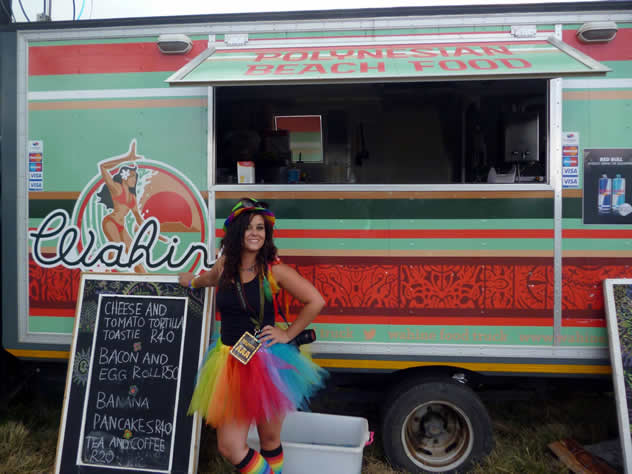News
Fad or opportunity: 8 ways to survive in the food truck business
Thursday, September 29th, 2016There’s no doubt that food trucks are popular. In the last few years, the number of hip, fitted out food trucks has ballooned from 20-odd to over 65. Our annual roundup is consistently one of the most-read stories on our site – and food truck-related news – like the recent opening of Good and Proper food truck park in Sandton – goes instantly viral. But running a food truck is no picnic – especially in the long winter months. We chatted to several food truckers around the country to find out how they make the business work for them.

Didi Bensimmon of Didi’s Bitchin’ Burritos. Photo supplied.
1. Find a regular spot
Being in the same place at the same time each week will help you to build up a customer base. Didi from Didi’s Bitchin Burritos in Cape Town says that their daily trading spot at the Salt Circle Arcade in Woodstock has been integral to their business. “Salt Circle keeps our operation continually busy,” says Didi, who finds things slow down when they rely only on events. That said, finding a steady spot can be difficult. “It would be incredible to have a few dedicated spaces in and around the Cape Town CBD area where we could have a few alternating food trucks to serve directly to the public,” says Didi.
Richter and Sam from Wahine, who operate every Friday at Black River Park in Observatory, agree. “Black River Park have been so good to us since the beginning,” says Richter. But, say the couple, local policies are not geared in truckers’ favour: “One can apply for a hawkers license, but the regulations dictate that the vehicle being used must fit into a standard parking bay. Most food trucks are too big to fit into the space”. He’s eager for the city to reevaluate old laws to be more like the American system where they’re granted roaming licenses that enable them to reach more informal trade.
2. Supplement income with private parties
Weddings, music festivals and events can be a lucrative market – but choose carefully. “Some organisers are very fair and charge a 10% fee of total turnover,” explain Richter and Sam. Other events demand that traders pay astronomical fees upfront. “One event is asking approximately R15,000 upfront, plus they are penalising traders heavily if they run out of stock. Yes, granted, there is opportunity to earn good money, but as a lot of us are small business owners, such demands can be a heavy burden on the cash flow of the business. After all, we are there to add value to events,” say the couple. Other food truckers warn against showing up for events like trance parties, where younger crowds are prepared to spend much less on food.

The Salt River Circle Arcade.
3. Train your staff
Staff salaries can drastically reduce the profitability of the business, so be prepared to remain hands-on. Huseyin Batkin, who ran a Middle Eastern food truck in Cape Town from November 2014 to January 2016, points out that food truck visitors are also after an authentic experience. So being there yourself, or training staff to live the brand, can help. The Wahine team has focused on staff development and found that helping staff learn crucial skills can be very rewarding. One of their first staff members has now gone on to open her own trailer.
4. Find a reliable van
Tacokombi’s Valjean Joubert jokes that their biggest struggle is wondering whether their old cars are going to make it to the venue or break down en route. But it really is important to make your truck as portable as possible. Didi says having a truck that can be set up in almost any car park has increased their options in terms of location drastically.

The Tacokombi food truck. Photo supplied.
5. Learn as much as you can
Huseyin Batkin saw his time running a Middle Eastern food truck in Cape Town as a stepping-stone to opening his own restaurant. He’s since opened SHEGO in Green Point. “After serving food for over a year to the public at different events, we got to learn a lot about what people want, and about suppliers and competition. My advice – listen to everyone’s advice but make your own decisions in the end”. Of course, restaurants built with bricks and mortar are not everyone’s ultimate goal. “Would you eat cyanide?” responds Valjean of Tacokombi when asked whether they’d ever consider opening a restaurant.
6. Keep it simple
Huseyin served only three items: chicken, lamb, or falafel wraps with homemade toppings. This helped to keep food costs down, and quality up. Also consider how you can open up your truck to appeal to more people. Can you offer Halaal food? Do you have a vegetarian option? A wheat-free option? A banting option? You can’t be all things to all people, but picking one or two will help expand business.
7. Make friends with your fellow truckers
With allies, or by planning to share a spot so there’s someone to cover each day of the week, you’re more likely to be able to make a spot into a destination. Plus, as Julia Child told us, people who love food are always the best people. “When we meet people that are as passionate about food as we are, it’s always a bonus,” say the Wahine team.

The Wahine Food Truck. Photo courtesy of the food truck.
8. Reap the rewards
There are, of course, great positives to running a food truck. Apart from Mondays (Valjean’s favourite day), truckers say they absolutely love working for themselves. “It affords us the free time to be able to grow amazing veg and herbs for our customers on our plot, and chill with our two Korean ginger cat children that we adopted whilst living in South Korea,” say the Wahine team. It also means they can provide for their cat children.













EatOut should have interviewed some of the top food truck operators in the WC. I feel a lot of the comments here are geared at smaller operators and give a skewed impression of how to operate. First off if you operate your business correctly and chose your events properly you won’t have to supplement your income as mentioned in the comments. Second of all the food trucks that don’t cut it look towards the operators that are doing well and start copying not only their menu but also try and muscle their way into events. It is for this reason why a lot of the larger operators stay quiet and continue to set the pace for other to follow.
Ciao